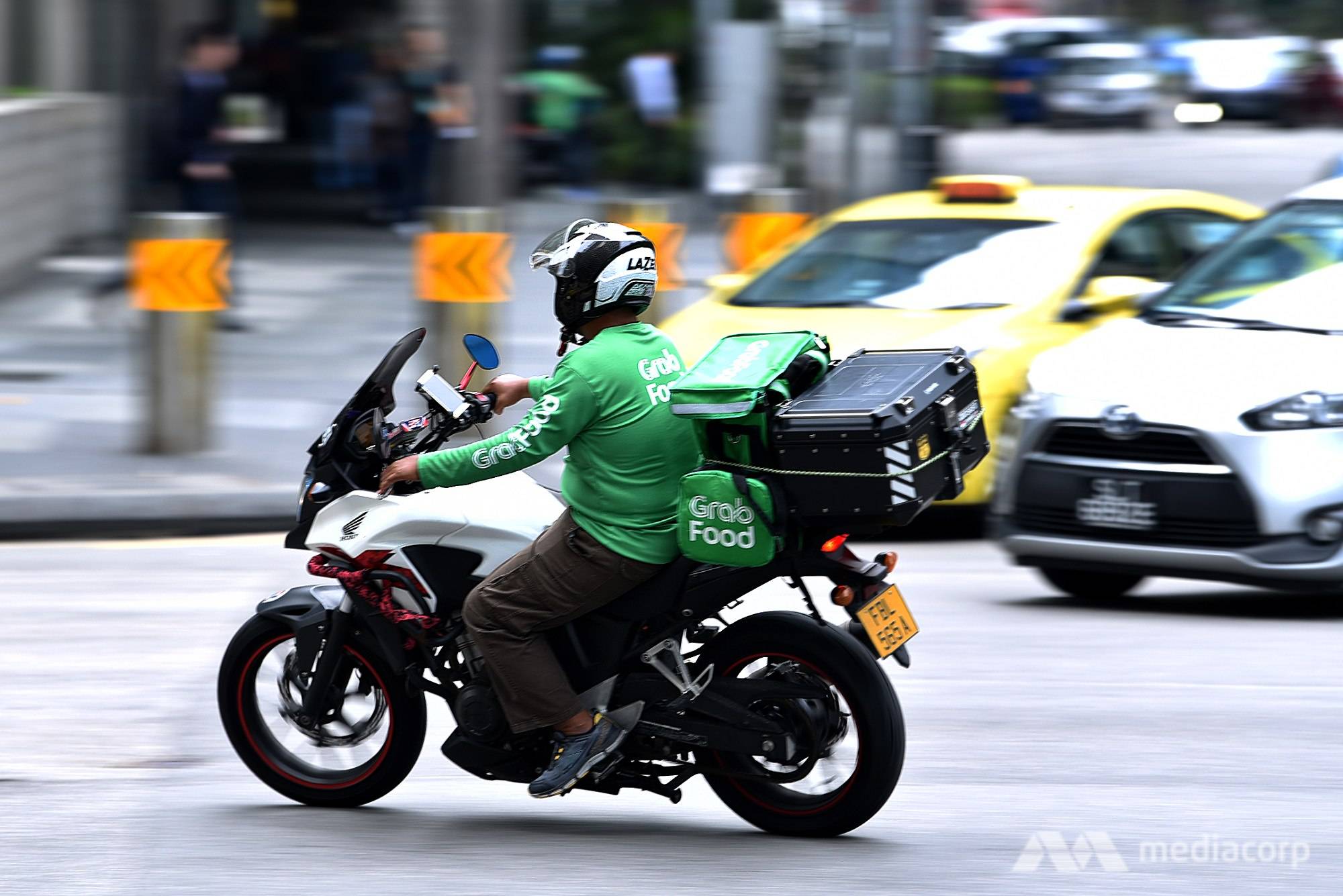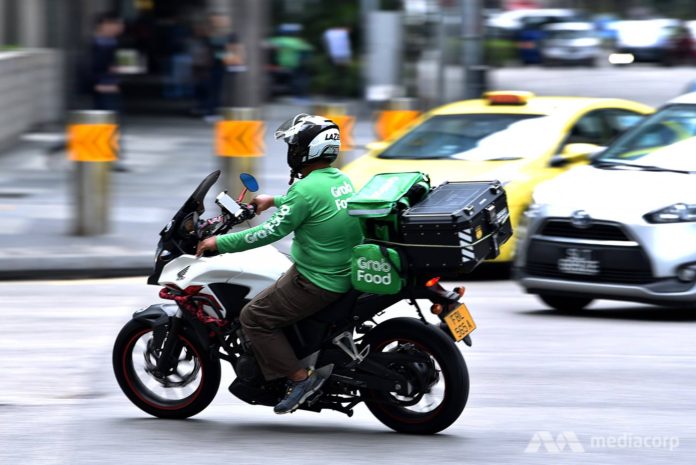SINGAPORE: “Sounds like an innovative loan product?”
That was the initial reaction of Arne Hartmann, founder and CEO of amalan, a debt management social venture operating in Indonesia and Malaysia, to Grab’s new cash advance scheme Upfront Cash.
The scheme provides selected workers with the option to receive part of their projected earnings after paying a one-time administrative fee.
The response to GrabFinance’s latest offering was swift amongst experts and critics. Government Parliamentary Committee of Manpower Deputy Chairman Zainal Sapari also expressed reservations.
“I have some concerns … As the borrowers may find themselves in financial distress (if) they are unable to repay,” he said. I share his concern.
THE RISKS
Let me be clear, I am not criticising Grab’s cash advance model. But I think it’s worth looking at this new initiative with some perspective.
As someone who grew up in the US, I saw firsthand how irresponsible lending practices trapped a lot of people in a vicious cycle of debt and eventually landed them in bankruptcy.
The debate in the US over payday lending schemes continues to rage to this day – after the US Consumer Financial Protection Bureau drew up wide-ranging rules in 2017 to curb the powers of lenders and tackle predatory lending. (These restrictions aim to cap lending charges at 36 per cent of the loan amount.)

File photo of a Grab Food delivery driver (Photo: Jeremy Long)
Even in the UK, new creditworthiness standards and caps on loan costs have been slapped to protect borrowers. Many firms unable to meet these stringent requirements have exited.
At the same time, I see how hardworking people who have an emergency need for funding when it comes to paying utilities, rent or school fees benefit from such cash advances or loans.
Therefore, it is more important that we ensure this lending is carried out responsibly and with full transparency and knowledge of the terms, conditions and costs.
It’s worth reflecting also on the circumstances that lead many to borrow cash.
Though news report suggest some take up the scheme to fund luxuries like a holiday, there are many situations that show how an unexpected jolt in the personal financial situation such as a death in the family, a needed emergency surgery, or work injury can lead to cashflow problems for workers.
Even positive events in our life could warrant a sudden increase in our expenses – including events like a wedding, childbirth, a decision to pursue higher education, among others.
There are not that many financing options that provide im
READ: Commentary: Go-Jek and Grab’s two competing visions are knocking heads in Asia
WHERE WORKERS CAN BORROW FROM
Working without a fixed income, Grab drivers might find it more difficult to get loans from traditional banks. Grab’s cash advance therefore improves access to financing for its drivers.
File photo of a Grab car. (Photo: Facebook/Grab)
This in itself is a service that could benefit GrabFood deliverers and drivers, providing them some recourse to critically needed short-term funds to make ends meet.
In addition, Grab runs an efficient standard procedure to process applications, disburse and collect the advances.
READ: Commentary: Driving a Grab full-time right after graduation. Should you do it?
Unlike Grab, banks might be less able to gauge the reliability of a Grab partner’s earnings. Grab has full data on their partners’ performance, past earnings and near-term earning potential, so it may be able to provide a higher credit limit based on their earnings-to-cash-advance ratio.
But Grab minimises the risk of default and its exposure by employing proprietary knowledge to assess the creditworthiness of its drivers, and ensuring that it will collect payment first before other creditors.
UNCERTAINTIES
For now, Grab says it’s only offering the Upfront Cash Programme to a small group of partners selected for their good historical earnings. But there are uncertainties and unanswered questions over Grab’s calculations over how much of a loan to provide.
Does Grab analyse the full credit history of a borrower? The Grabsite indicates: “You don’t need to submit documents to apply for the Upfront Cash programme.”
Does Grab know how many other credit cards or how much outstanding loans a borrower has – which he or she is counting on his earnings to pay off?
A person using the Grab mobile app. (Photo: Grab’s website)
What sort of financial consultation about his rights and responsibilities does a Grab partner receive before Grab issues the cash advance?
What happens if the driver defaults? Is there a penalty? Would Grab charge new “admin fees” for extending the tenor of the cash advance?
Grab has said it would have a dedicated team to assist partners that fall short of their target incentive earnings and face problems in repayment but there are other scenarios that have not been addressed.
What if the Grab partner “quits” or can’t work anymore due to an accident or other unforeseen circumstances? Would Grab employ a debt collector if someone truly can’t pay off the cash advance balance?
How will Grab enforce a borrower paying off the account balance? Is there a loan forgiveness programme that a driver can apply for? My list of questions goes on.
READ: Commentary: How the new Point-to-Point Transport Industry Bill levels the playing field for ride-hailing operators
MONEY LENDING FRAMEWORK
The problem with Grab’s new programme is that it is currently framed as an upfront cash advance or an advance payroll scheme, which many firms in the US offer, but sounds a lot like a loan scheme.
One could even argue that charging admin fees (of up to 8 per cent) is in essence requiring borrowers to pay interest upfront.
This scheme might not be so different from traditional lenders charging borrowers processing fees for loans after all.
File photo: Singapore’s Ministry of Law.
READ: Commentary: Bike-sharing e-wallets, peer-to-peer lending and the astronomical rise of shadow banking
But there are good reasons why this kind of lending happens within a regulated framework. In fact the Ministry of Law has imposed new regulations, a new self-exclusion system and fresh caps on loans for moneylenders last year.
I do want to give Grab the benefit of the doubt since they have indicated that the programme has been limited to a small group of partners.
As someone who has been involved in social entrepreneurship programmes, I fully support the growth of a company like Grab, which can serve unmet needs by leveraging the use of technology and data, and has plans to pursue a digital banking license.
But as a caring society, we ought to watch out and look out for one another, especially those who work in the gig economy.
The Ministry of Law has said they are seeking further information on the programme and work with relevant agencies to ascertain the applicable legislation if any.
This attention from authorities is welcome. If this is in fact a loan, Grab ought to be regulated the same way as other licensed lending firms.
READ: Commentary: The curious case of slick start-ups that tout billion-dollar valuations then rapidly collapse
While authorities’ wait-until-complain approach has erred on the side of being pro-business, and has been applauded by start-ups and companies trying out new business models to serve society in new ways, the worry is whether such a policy towards disruptive businesses with huge market share and influence over many workers’ lives needs a rethink.
If a firm with big FinTech ambitions can get away with moneylending functions without requiring a license to operate, it is unclear what sort of a precedent Singapore, as a financial hub, is setting.
Jonathan Chang is an investor in startups, advisor to governments, and lecturer in entrepreneurship and innovation. He has been awarded a Social Entrepreneurship Fellowship by raiSE (Centre for Social Enterprise).





